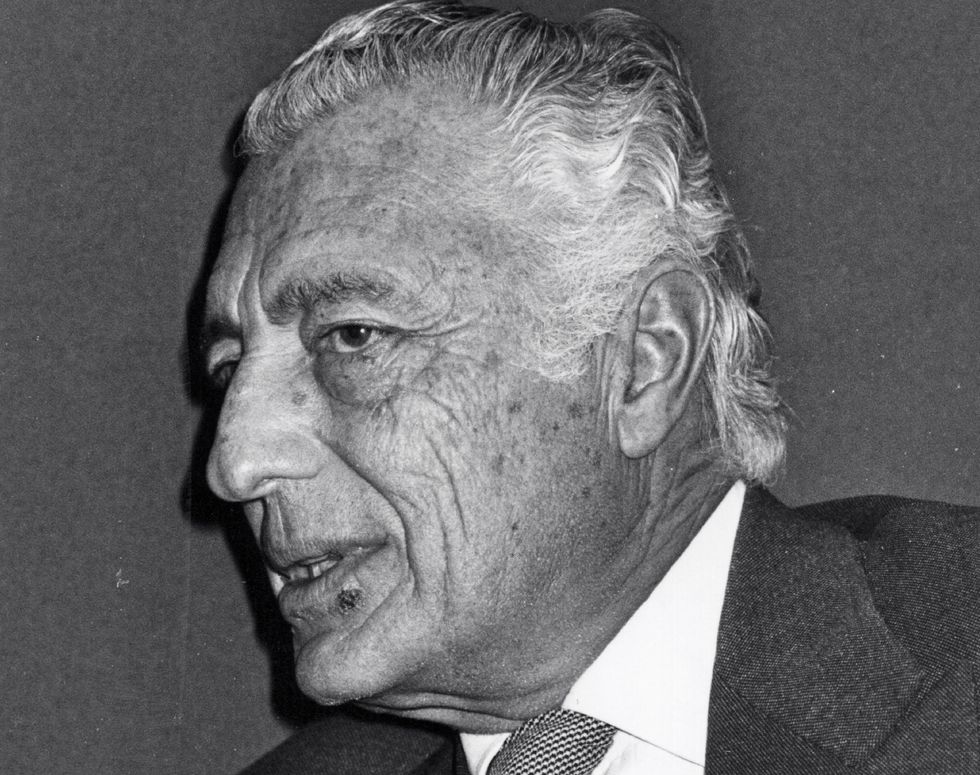Gianni Agnelli, l’Avvocato and me
Jas Gawronski reminisces about his long-standing friendship with Gianni Agnelli. And reveals that Agnelli once told him, “If I could have, I wouldn’t have invested in Turin, and certainly not in cars”
"For many, especially foreigners, Gianni Agnelli was for decades the symbol of what was best about Italy. Today, he is hardly ever mentioned. All that remains is a sense of sadness that he is no longer with us." Ten years have passed since "L'Avvocato" (the Lawyer) passed and Jas Gawronski?"journalist and author, former Italian senator and member of the European parliament, currently on the board of directors of the Italian daily La Stampa and president of the Quadriennale, but above all personal friend for half a century of the president of FIAT?"does not turn down yet another chance to reminisce about him. Because Gawronski was a real friend of Agnelli, no strings attached. Perhaps one of the very few.
L'Avvocato and Italy?"a strong, important relationship...
For Turin and Italy, in that order, I would say. This tie with the city and the nation certainly affected management decisions which he considered contrary to his own and his family's interests. "If I could have chosen, I would not have invested in Turin or Italy, and certainly not in cars," he once said to me.
Did he talk to you about the future of FIAT?
He often spoke about what would happen after his death, from a practical standpoint of what would happen to his empire. And all his thinking and decisions were focused on avoiding and preventing in-fighting in the family which he feared and believed to be inevitable, as, in fact, happened.
Would he have liked the choices Sergio Marchionne has made?
I think so, given that he has saved what was his company. In any case, when talking about FIAT or La Stampa, he never criticized his men, even if there might have been reason to do so. Apart from joking about them. For example, he loved Cesare Romiti's unscrupulousness?"he found it entertaining.
What did he think about getting old?
He talked about it openly, jokingly. He had read a lot about the topic, both ancient and modern thinkers, but made ironic comments about the de senectute, treatises on old age, by writers from Cicero to Norberto Bobbio who tried to bring out the positive aspects of aging. "Advantages my foot," he said, "it's just a disease that's inevitable."
Defects?
A certain cynicism. If he didn't like someone, he knew how to get rid of them without standing on ceremony, even if they had been friends. Maniacally punctual. And he didn't like being criticized in the press: he was certainly spoiled about this.
Good qualities?
His eclecticism, curiosity and respect for institutions. Eccentricity raised to the level of being a virtue. Sincerity: he considered any sort of camouflage, subterfuge or falseness to be unworthy and he disdained liars above all.
How did he look at death? Did he ever talk about it?
Not very often, except to hope for an end very different from what he actually experienced. A quick death, even in an accident. But he kept his optimism to the very end. Even just a few weeks before his death he was making plans for the future. I don't think he realized that death was already so close. Also because he always avoided the ends of things, from soccer games to books or movies. He never wanted an emotion to be over. It was only at the very end that he accepted the idea of death, but maybe only because it was the last new thing he had never experienced.


